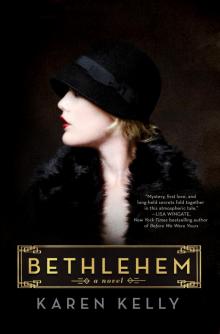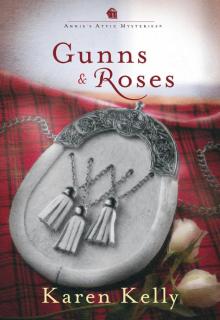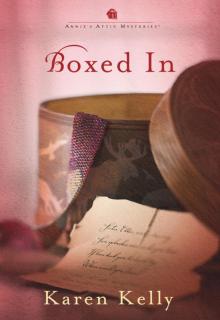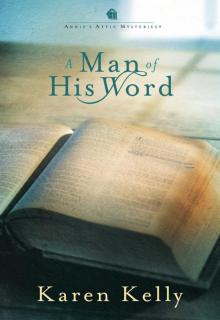- Home
- Karen Kelly
Bethlehem
Bethlehem Read online
Begin Reading
Table of Contents
About the Author
Copyright Page
Thank you for buying this
St. Martin's Press ebook.
To receive special offers, bonus content,
and info on new releases and other great reads,
sign up for our newsletters.
Or visit us online at
us.macmillan.com/newslettersignup
For email updates on the author, click here.
The author and publisher have provided this e-book to you for your personal use only. You may not make this e-book publicly available in any way. Copyright infringement is against the law. If you believe the copy of this e-book you are reading infringes on the author’s copyright, please notify the publisher at: us.macmillanusa.com/piracy.
To Susan, for insisting. And to Mom and Dad, for providing the music—always.
Acknowledgments
Enormous thanks to Laura Ross—your perception, talent, and kindness are world-class. I would also like to thank Alexa Stark, at Trident Media, and Jennifer Weis, at St. Martin’s Press. Most of all, my eternal thanks to the girls who keep me going—my beautiful squad.
One
AUGUST 1962
“It’s nice to see some live children around here.”
The voice came from behind Joanna—unnerving in itself—but as the ghoulish implication settled in, she shivered.
The figure seemed to have appeared out of nowhere—The Old Woman in the Wood in a frayed straw hat. There was a trace of dirt on her cheek, and when she smiled, one front tooth pushed just slightly forward, giving her a charming, imperfect appeal. “Welcome to my garden of eternal repose.”
Joanna couldn’t control it—her eyes ran up and down the woman in a conspicuous once-over. Thick-soled shoes layered with soil, baggy men’s dungarees, a canvas apron anchored by four large pockets—all topped by a lined face with crinkled spaniel eyes. A cottony bun peeked out from under the hat. This was a grandmotherly face—not ghoulish, not unearthly. Thoroughly earthly, in fact.
Cautiously, Joanna returned the smile. “I hope it’s all right. I thought we’d just stroll through, but when they saw the swing…”
Suspended on thick ropes from an enormous oak tree was a grayed slat of wood, where now perched a young girl, propelled by her brother’s indulgent heave-ho.
“It certainly is.” Placing her small spade and bucket of weeds on the grass, the woman lowered herself onto the bench. She smiled again at Joanna, patting the seat next to her. “Lovely to have you here. I’ve been waiting to meet you.”
“I’m sorry?”
The woman laughed, clapping both hands on her knees. “Sounded like the grim reaper, did I?” She slipped off a work glove and held her hand out. “Doe Janssen. Proprietress. And you’re Joanna Collier.”
Clasping the proffered hand somewhat tentatively, Joanna sat down. If she wasn’t outright rattled, she was getting there. “How did you know?”
“Wouldn’t take a soothsayer to figure it out. One look at that little boy and you know he’s a Collier. But I’ve seen you before—at your father-in-law’s funeral last year. And I knew that Frank had moved his family into Brynmor.”
Joanna looked over at Charlie, surprised. She hadn’t thought he took after her husband whatsoever. “You know the family?”
“Oh yes. Hedy’s a dear friend. We go back decades.”
Joanna was beginning to wonder if she was hallucinating. Sitting in the middle of a graveyard with this rustic stranger—a little old lady in trousers who seemed to know a lot about her life—was peculiar enough. But even more bizarre was the idea that her husband’s stately, refined grandmother could have somehow befriended a cemetery custodian.
“Do you live in the house?” Joanna nodded toward a hulking brick manor of indeterminate style that sat within the tall iron gates, surrounded by headstones large and small.
“Oh yes … it goes with the territory. In Grange House, we have dwelt—nigh fifty-seven years.” She recited the line like poetry. “My husband moved me in as a bride, and we’ve never left.” Pausing, she gazed around. “It may seem strange, given the circumstances, but it’s turned out to be a lovely life. We’ve known most everyone in Bethlehem, and those who have moved in here are quite good company.”
Curious about the earth-streaked little woman in the tattered hat, Charlie and Daisy had quit the swing and were now hovering at their mother’s elbow. Charlie—shy at six but naturally inquisitive—ventured a question: “How many people live here?” He was looking toward the house.
Doe chuckled and gave him a weighty look. “Well … there are just three of us actually living here … but we’re surrounded by very interesting neighbors, if you get my meaning.”
Increasingly uncomfortable with the slant of the conversation, Joanna tilted it in a more corporeal direction, drawing a handkerchief from her pocketbook to scour at a scuff of dirt on Daisy’s knee. “Charlie, Daisy, please say hello to Mrs. Janssen. This is her yard, and she has been nice enough to let you play on her swing.”
One voice was muted and one rang out: “Hello, Mrs. Janssen.”
“Hello, little monkeys. You can call me Doe. Everyone does.”
“Do you have any children?”
Daisy (she of the bold approach) was hoping to find a friend, Joanna knew. The move to Bethlehem had been exciting at first, but school didn’t start for another month, and the kids were getting tired of each other. Their only other playmate over the past weeks had been Harriet, the maid. Dear old Harriet. If she was tired of pretending to look high and low for them as she dusted and polished, she hadn’t let on.
“Our little girl is all grown-up and moved away.” As Doe gazed at the swing, a shadow drifted across her face. “Her daddy rigged that up, oh … I guess it must have been about fifty years ago. But our grandson Daniel replaced the ropes this year.” Her expression brightened. “I think that old swing is happy to feel the weight of some real children for a change, and not just that sweet little redheaded fellow who is nothing but air.”
Charlie and Daisy were speechless, staring at the woman with expressions that swung from suspicion to wonder.
A little warning signal flashed in the back of Joanna’s mind: Bats in the belfry. “I’m sure Mrs. Janssen—Doe—is joking,” she said evenly, hoping the woman would take the hint and stop sowing nightmares.
But Doe continued with breezy aplomb. “Oh, but I’m not. We have all sorts of souls wandering around here. There is a band of Union soldiers, for instance. And I do mean band. Drum … bugle … banjo. They can make quite a racket.” She paused for a beat, looking over at a section across the way. “It’s lovely, though, when the young fellow from Easton plays his harmonica. ‘Oh Shenandoah … I long to hear you.…’” Her voice piped out in warbling vibrato.
Now Daisy was rapt, begging for more. “Who else do you see? Are there any more children?” The macabre implications didn’t even register, so giddy was she at the prospect of meeting some new friends. Charlie, however, couldn’t hide the cloud of anxiety that drifted across his face. He made a sudden scan of the surrounding headstones, and his hand snaked into his mother’s as he pressed against her hip.
“What’s this over here?” Joanna was on her feet in a preemptive strike, taking the children in hand to a neighboring headstone, where a small ceramic dachshund stood sentry. As distractions went it was somewhat uninspiring, but at this point Joanna was doing what she could—and was beginning to regret her earlier impulse.
St. Gregory’s Cemetery sat high above the Lehigh River, overlooking the voluptuous river valley and beyond to the broad heft of South Mountain. Joanna had been there before, but only under sad circumstances and in a large procession of peop
le. Since moving to Bethlehem, however, she had a new appreciation for its verdant beauty. Each time she walked to town, she passed the gates: despite the irony, there was a quality about the graveyard that was somehow inviting. She couldn’t help being drawn to the serenity of what her aunt Martha always referred to as the “marble orchard.” And so today, as she and the children were returning from a trip to the five-and-dime, she had decided it couldn’t hurt to go in and let them roam. Now she wasn’t so sure.
“We do find the occasional memento.” Doe had followed them, shifting to a less spectral subject. “There are the usual love letters, rabbit’s feet, lockets, and such. A pocket watch here and there. One time there was a plastic snowman, and once, an old musket. Not loaded.” She was squinting to remember. “And there was a stethoscope. That was from poor old Doc Maxwell. He couldn’t be convinced his wife had died. He’d walk around town looking high and low, until he remembered she was here. Then he’d lie on the grass and listen through his stethoscope for signs of life through the dirt.” She shook her head. “His daughter didn’t know what to do about it. It was a blessing when he joined Millie here.” Remembering Joanna’s question, she considered the dachshund for a moment. “This one’s new, dear. We’ll leave it for now. Every dog has his day, as they say. Which reminds me…” Leaning forward, she inveigled the children with a dramatic stage whisper: “If you want to really see something, come with me.”
As they wound through canopies of elm and oak, sycamore and dogwood, Joanna trailed behind, taking it all in. The natural beauty was idyllic, and yet somehow the smooth stone of the carved monuments managed to improve upon it—no small feat. Even the plain zinc markers lent an austere, elemental grace. Many dated from before the Civil War, their inscriptions barely legible. Each one seemed to call to Joanna, a faint petition: Recognize me once more—that I should exist again. But Doe forged ahead in front of her—inured, probably, to the brief, beckoning narratives—so Joanna passed them by, apologetic at heart.
At a large trapezoidal slab, Doe stopped. On inspection, it would have been easy to pick out the carved image of a noble-looking canine just below the dated inscription. This detail, however, was overwhelmed by the blindsiding distraction of an actual dog, lying motionless across the mounded grass—a German shepherd with glassy eyes and a tattered, mangy coat.
Charlie’s face was a study in shock. His eyes opened nearly as wide as his mouth, and he reflexively grabbed at his mother’s skirt as he failed to suppress a strangled cry.
Doe was contrite through her laughter. “I guess I should have warned you,” she cackled. “This poor soul, Macpherson, loved that dog so much, he hired a taxidermist when he died. His daughter brought Shep over the other day—she was finally cleaning out the shed and found her dad’s old companion. She couldn’t bear to just throw him away. I didn’t have the heart to turn her down. But when Daniel mows this section, old Shep’s days are numbered.”
Daisy was on the ground, gently stroking the mottled fur, not bothered in the least by the animal’s lifelessness. At the mention of Doe’s grandson, she turned to ask, “Could Daniel come out and play with us?” Her little face was so beseeching—brows knit and eyes hoping—that Joanna reflexively took a mental snapshot, depositing the small, insignificant moment into her memory bank of images. Oh, how she loved five. Five was wondrous. Five was artless, unaware, wide-open, and heartbreakingly sweet. Five hadn’t started school yet, hadn’t begun the steady, inevitable journey toward self-consciousness, contrivance, comparison, and all the other encumbrances of growing up. Charlie was only six, yet already she could tell a difference.
Doe looked into the distance. “He’s already out here, somewhere. I thought we would have seen him by now.” Her face lit up as a figure came into view. “There he is! Yoo-hoo!” she called, waving her hand high in the air.
The man walking across the southern edge of the property—along the ridge overlooking the river and the valley—waved back and started to make his way across the rolling sea of green, pushing a wheelbarrow. Daisy’s face fell.
“Daniel came to us six years ago,” Doe said, turning to Joanna, confidential. “Our daughter, Sarah, married Amish. She and Samuel live in Lancaster. They have seven children now. Because of their … ways … we’ve never been welcome in their lives.” The words were coated with a dim patina of pain, but as her grandson drew closer, she brushed her hands together and lifted her chin. “But Daniel was cut from a different bolt. He’s independent, that boy. He studied for his diploma when he first got here, and then went to work in the Pittsburgh mines to save. He’s going to be an engineer. Takes night classes at Lehigh. In another year, he’ll be working his way right up the ladder at Bethlehem Steel, mark my words.”
They observed him like spectators as he cut over to the path, finally wheeling up to tip his straw hat. He wiped his brow with a red bandanna, and his manner was almost courtly. “Hello,” he said solemnly. “How are you?” Joanna half expected him to make a small bow. He had the clearest, lightest blue eyes she had ever seen. They were nearly translucent. She was reminded of the Siberian husky that had lived down the street when she was a young girl. She had always found that dog’s pale eyes slightly disturbing.
Doe made her happy introduction. “This is Joanna Collier, new to town but part of a very old family here.”
Daniel hesitated as Joanna extended her hand, looking askance at his own before clasping hers. “Sorry … occupational hazard.”
Despite the grimy effects of grounds-keeping, his hand felt warm and smooth, and his gaze was so direct and steady that Joanna felt a strange discombobulation. Too abruptly, she pulled her hand back.
Doe didn’t seem to notice as she rested her own hands on two small shoulders. “And for our amusement, she has very generously brought us these adorable puppets. They’re called Charlie and Daisy.” She tugged lightly on their collars as though they had strings.
Though shy, Charlie was sharp. With a deadpan expression, he shot out one arm and one leg, then tilted his head to the side, staring blankly. Joanna was always a little surprised when Charlie did anything goofy—he was usually a pretty serious kid. Daniel laughed and ruffled Charlie’s hair. Daisy, for once, was mute, her disappointment momentarily forgotten as she stared up at Daniel’s pale eyes.
“Puppets, eh? Well, I wish I had time to stay for the show.” He nodded at the wheelbarrow. “A person can’t get dinner around here if the job’s not done.”
This was directed at Doe, and she winked at her grandson. “I bet if you pull the right strings, you could put these little dolls to work.”
Daniel squatted down so his forearms rested across his knees. “I could use some help with the pruning. Have you ever given a haircut to a rhododendron before?”
Daisy’s face lit up and she looked to her mother hopefully. “Can we do pruning? Please, Mama?” She was inordinately excited about the prospect, given the certainty that she had no idea what pruning was.
Joanna was skeptical. “Wielding a hedge clipper may be a bit above your pay grade.” Trailing her fingers through her daughter’s neat bangs, she leaned down to kiss the little girl on the forehead. “But I think you two would make excellent assistants.”
“Come on, then.” Daniel grabbed the handles of the wheelbarrow and started off. “You can be my cleanup crew. Who wants to use the rake?”
The children fell in behind him, loudly vying for the rake and keeping so close, they were practically stepping on his boots. As they moved away, Daniel turned back. “I’ll be coming for that dog”—he arched an eyebrow reproachfully at his grandmother—“before old what’s-his-name wanders by.”
Doe grinned as she watched the small parade cross over to the hedges bordering the tall iron fence. “Mr. Janssen has had it with me, letting people leave their tokens. He says this place would look like a yard sale if he didn’t put his foot down.”
Joanna looked around and saw a plot with a small figurine of the Virgin Mary leaning against
the headstone, but for the most part there were just simple urns of carnations or roses to represent the grieving. She turned back to Doe, who was now pulling a handful of stealthy yarrow from behind a bench. Though inveterate tease and just plain nuts still vied for the verdict, Joanna was grateful for the woman’s kindness. “Thank you. It’s getting to be a long summer. We moved in at the beginning of June and they don’t have any friends yet. School can’t start soon enough.”
Doe moved around the bench and then took a seat, patting the spot beside her. For a while they sat in companionable silence, and Joanna luxuriated in the serenity of her surroundings. Eventually she remarked on the fine weather, and Doe declared the necessity of a clear day for making fudge, moving on to the fullness of the late-blooming azaleas, and the recent Good Housekeeping article about Mrs. Kennedy. And then she steered the conversation in a more personal direction.
“How is Susannah these days? It was a real shock, Wyatt Collier dying so suddenly like that.” She shook her head mournfully.
A shock, yes. Joanna could still see her husband’s face as he dragged himself home that night, grief etched in his exhausted eyes. She thought he had been working late again—she hadn’t known the past hours had forged a terrible odyssey, that Frank had held his father in the ambulance, refusing to follow in the car, that he had insisted the doctors continue their efforts, despite the obvious futility. At eight o’clock that night, Joanna could not have known that Frank was shuffling up the wide front steps at Brynmor—bearer of tragic news, summoning whatever emotional strength he could as he limped down the long hall to tell his mother that her husband was gone.
“She is amazingly stoic,” Joanna replied. “Such a long, devoted marriage … and yet she has never shown a crack. I don’t know how she does it.”
Though sixty’s shadow loomed ever larger, Susannah Parrish Collier was still a beautiful woman. Her jawline remained firm, and her eyes were a deep indigo, though her blond hair—worn in sleek chignon—had softened to a creamy buff. Frank had her fair coloring, but he had his father’s cleft chin and hazel-gray eyes. Father and son had also shared an identical build—not tall, but broad-shouldered and solid. But, most distinctive, Frank had his father’s demeanor—open, sweet, uncomplicated.

 Bethlehem
Bethlehem Gunns & Roses
Gunns & Roses Boxed In
Boxed In A Man of His Word
A Man of His Word